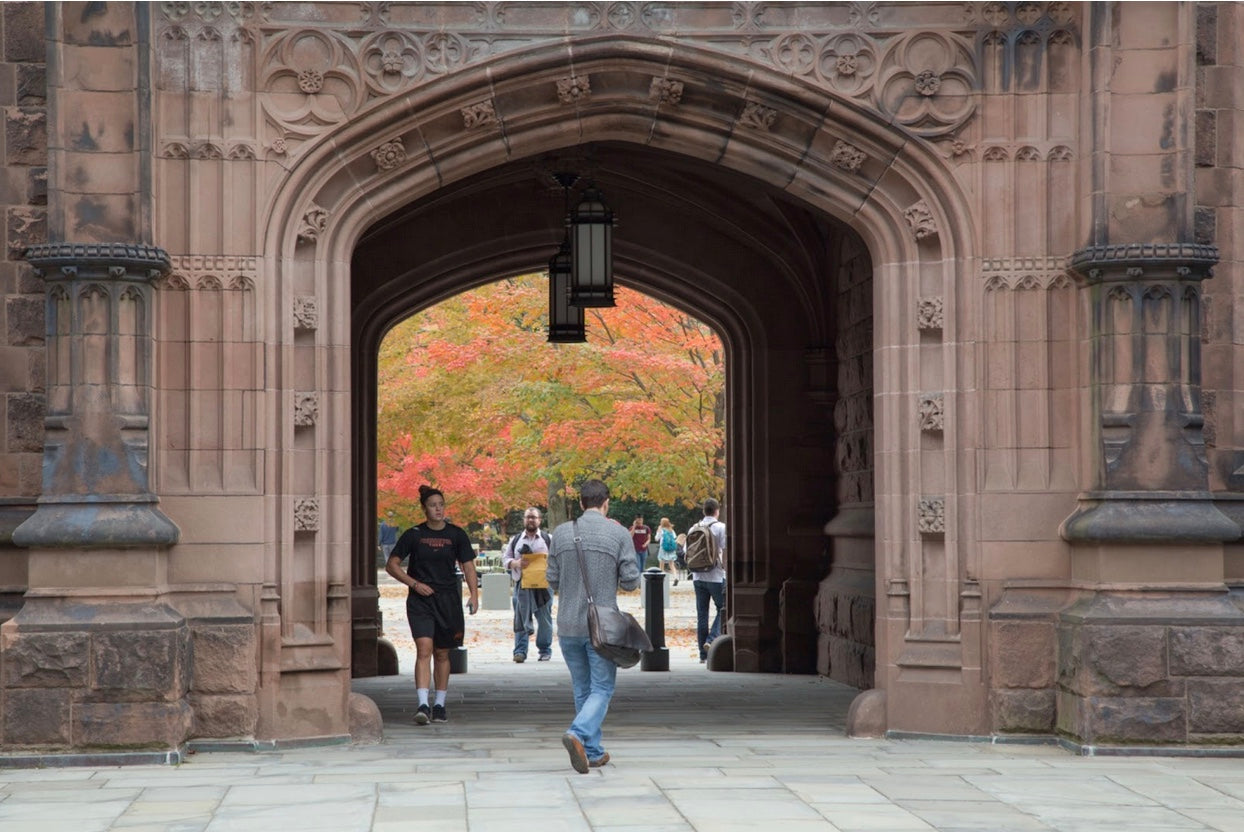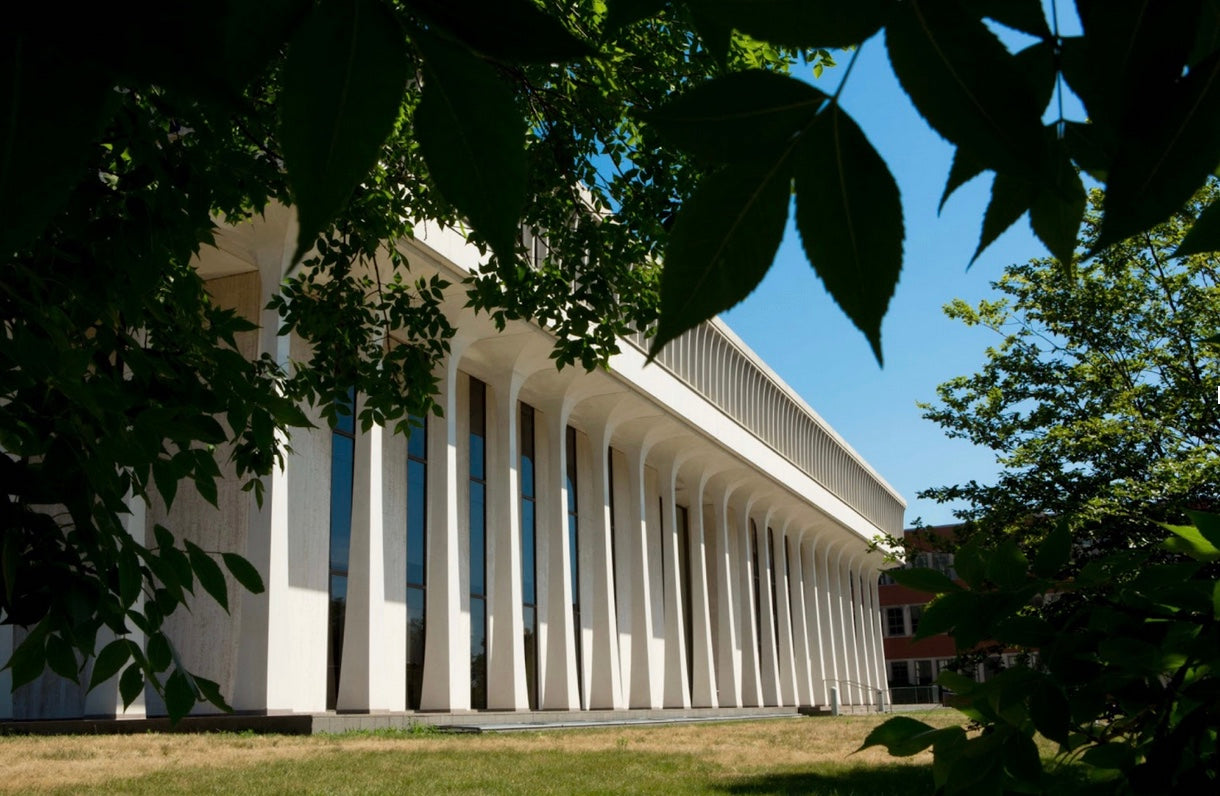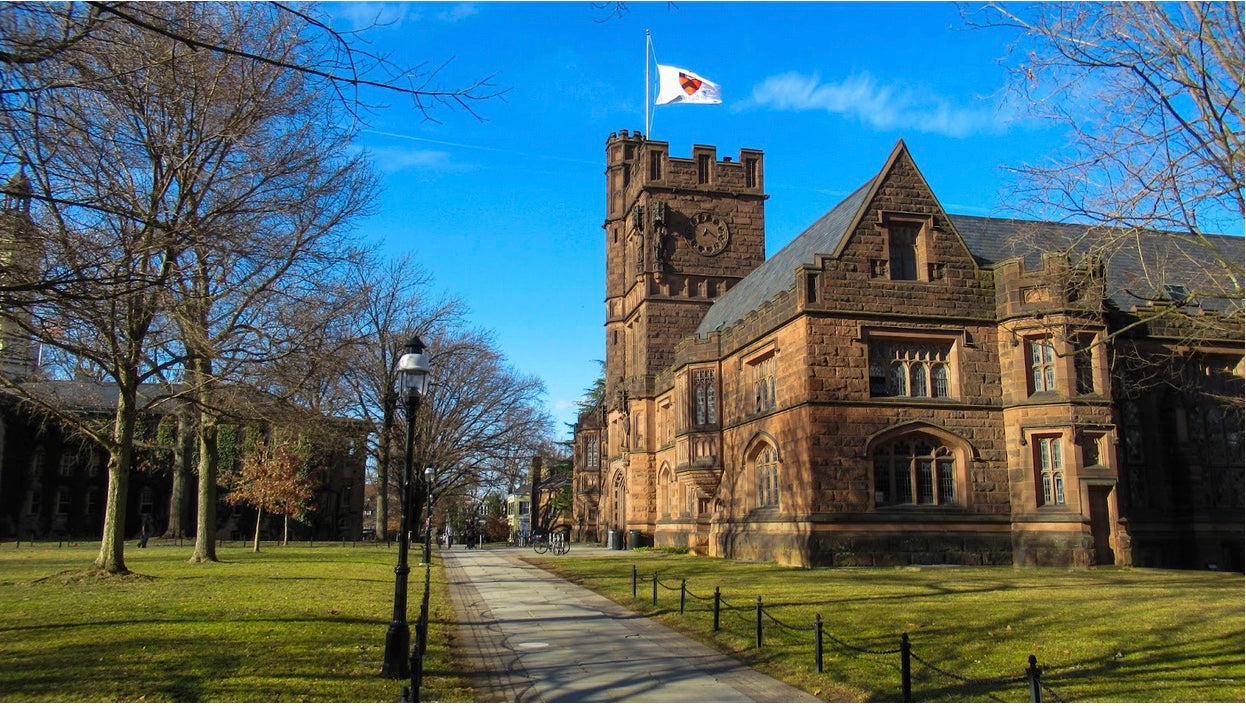Your Cart is Empty
April 30, 2024
To Princetonians for Free Speech Subscribers, members and friends,
A major PFS event will occur at Reunions 2024: “You Can’t Teach That! The Battle over University Classrooms.” On Saturday, May 25, at 10 am, Princeton’s leading First Amendment scholar Keith E. Whittington, William Nelson Cromwell Professor of Politics, will appear in conversation with Jonathan Rauch, prize-winning author and senior fellow at the Brookings Institution. See the description and details for this event in the Special Feature below. We hope to see you there!

Who controls what is taught in American universities — professors or politicians? The answer is far from clear but suddenly urgent. Unprecedented efforts are now underway to restrict what ideas can be promoted and discussed in university classrooms. Why do universities live or die by free speech? The answer to this question can help guide students, faculty, administrators and alumni when faced with unpopular, hateful or dangerous speech. Co-sponsored with the student group the Princeton Open Campus Coalition, Princetonians for Free Speech brings to Reunions 2024 Keith E. Whittington, a leading constitutional scholar and author of Speak Freely: Why Universities Must Defend Free Speech, in discussion with Jonathan Rauch, prize-winning author, most recently of The Constitution of Knowledge: A Defense of Truth. They will discuss the most pressing free speech and academic freedom issues facing private and public universities today, with a focus on Whittington’s path-breaking new book, You Can’t Teach That! The Battle Over University Classrooms.
If you are attending Reunions 2024, we hope you can join us at this important event! Please share this newsletter with friends and classmates. For those who can’t make it, we will provide a link to view it on YouTube soon afterwards.
Princetonians for Free Speech Letter to Vice President Calhoun
By Stuart Taylor Jr. ‘70, president, Edward Yingling ‘70, secretary, Todd rulon-Miller ‘73, treasurer, Leslie Spencer ‘79, vice chair, Princeton Alumni Weekly, April 26, 2024
Reactions: Guests respond to Eisgruber and Calhoun’s statements on protesting - The Daily Princetonian “Free Speech Can Only Go So Far”
by Edward Yingling, The Daily Princetonian, April 28, 2024
“The rules laid out governing protests at Princeton in Vice President of Campus Life W. Rochelle Calhoun’s email to students and President Christopher Eisgruber ’83’s statement in the ‘Prince’ are entirely appropriate. Those who argue that these rules and their enforcement violate protesters’ free speech rights are simply wrong about free speech.”
The Popular University Versus Truth
By Khoa Sands ‘26, The Princeton Tory, April 29, 2024
PFS student Writing Fellow Khoa Sands comments on student protests, old and new.
“Across the country, students are occupying university campuses and decrying their own schools. Chaos has unfolded at numerous universities. As authorities attempt to control the protest, criticism has mounted over perceived excessive force. The upcoming Democratic Party Convention in Chicago promises to be marked by radical demonstrations. The year was 1968.”
On encampments, free speech, and ‘time, place, and manner’ rules on university campuses
By Christopher L. Eisgruber, The Daily Princetonian, April 25, 2024
“Our success also depends on the consistent application of our policies protecting free speech. Princeton will continue to enforce those policies resolutely, including both this University’s expansive protections for the expression of controversial ideas and the time, place, and manner regulations that enable us to engage in thoughtful dialogue, debate, and deliberation about those ideas.
Protest and Civil Disobedience Are Two Different Things
by Keith E. Whittington, Chronicle of Higher Education, April 23, 2024
“Students too often imagine that protests and civil disobedience are indistinguishable, and it is part of the college’s educational mission to provide clarity on such matters. Students are free to express themselves within the confines of neutral rules designed the coordinate the activities of the many members of the campus community, each of whom have their own purposes to pursue and their own ideas to advance and each of whom is equally entitled to enjoy the benefits and use of the campus. Students who instead wish to commandeer campus spaces to impose costs on others and prevent them from pursuing their own activities should expect to face discipline and potentially be removed from campus, whether temporarily or permanently.”
A group of Princeton faculty have come together to create The Princeton Council on Academic Freedom. It mirrors the new faculty groups at peer institutions, like the academic freedom councils at Harvard and Columbia, Faculty for Yale, and the University of Pennsylvania’s Vision for a New Future.
Classics professor Emmanuel Bourbouhakis, who is coordinating the effort, says the Council plans a major launch event in the Fall of 2024. He spoke at length with PFS Vice Chair Leslie Spencer ‘79 about the importance of the Council’s mission for the long-term health of the university. You can read the Q and A on the PFS Website: A New Faculty Group at Princeton brings a common-sense approach to restoring Academic Freedom.
Progressives failed a lesson in free speech - The Daily Princetonian
Anais Mobarak ‘25, April 19, 2024
“As a liberal and near free speech absolutist, I was hopeful that free speech defenses of pro-Palestine advocacy would prompt campus progressives to reckon with the value of free speech. Perhaps, in a situation where progressive voices were on the receiving end of censorship of expression, then free speech might become more widely accepted as an apolitical principle. Unfortunately, the recent controversy surrounding Charter Club has demonstrated that progressive voices on campus have failed to recognize the value of free speech beyond its usefulness as a political instrument. Thus, as a community, we must work to foster an ideologically-free understanding of free speech.”
Letter from President Saller and Provost Martinez to Stanford’s Class of 2028, April 3, 2024
“Freedom of expression does not include the right to threaten or harass others and prevent them from engaging as equal participants in campus life. But the freedom of expression necessary for fulfilling the mission of a university – and for a democracy – does require allowing speech that some may find offensive or wrong. Many of humanity’s greatest advances have come from ideas that offended conventional wisdom and seemed heretical at first. In a university, the remedy for ideas that you think are wrong is not to seek to silence them but to counter them with better ideas, evidence, and arguments.”
Columbia Is Beyond Reform | City Journal
By Liel Liebowitz, City Journal, April 23, 2024
“It’s time we approached our elite universities not as critical institutions we must repair but as national security threats.”

Emmanuel Bourbouhakis, Associate Professor of Classics and the Stanley J. Seeger ’52 Center for Hellenic Studies
Speaking to PFS about the nascent faculty group The Princeton Council on Academic Freedom:
“At the core of the Council’s purpose is that academic freedom is not the kind of thing you want to delegate exclusively to the administration. As faculty, we should see academic freedom not just as an individual privilege, but as a collective responsibility to protect colleagues even, or especially, when they have said something that some may find controversial or abhorrent. What if a President bows to political pressure, whether internal, perhaps from some students, or external, from alumni or politicians? We as faculty really ought to have amongst ourselves some sense of our collective responsibility for each other’s academic freedom, as awkward or uncomfortable as that may prove, at times….
The real challenges will come when the principles in question are debated and tested. This is why we want to make academic freedom itself an object of ongoing vigorous inquiry and discussion on campus. We want people to be reminded of why academic freedom is not something you take for granted. You must be constantly vigilant. You must have it on top of mind, you must debate it and understand what it means, otherwise it becomes a dead letter.”
October 1, 2025
Dear PFS Subscribers, Members and Friends,
On September 25, PFS Vice-Chair Leslie Spencer ‘79 and Executive Director Angela Smith attended the third annual conference of the MIT Free Speech Alliance, an affiliated alumni group. The conference focussed on this fraught moment in higher education, with threats posed by both left and right and by the federal government.
August 29, 2025
Dear PFS Subscribers, Members and Friends,
Big news! PFS now has over 10,000 subscribers, representing 14% of the undergraduate alumni population.
“Resist vs. Reform” is this month’s Special Feature: President Christopher Eisgruber ‘83 was in the spotlight, forcefully defending his leadership role in the now publicly acrimonious divide. Some university presidents, including Eisgruber, urge their colleagues to present a united front against the Trump administration and refuse to admit a need to reform longstanding problems. The opposing camp, led by Chancellors Daniel Diermeier of Vanderbilt University and Andrew D. Martin of Washington University St. Louis, argues that “de-wokification” reform from within is the only way to resolve what is needed to restore public confidence in elite higher education.
July 1, 2025
Dear PFS Subscribers, Members and Friends,
June provides a welcome pause for PFS to try to make sense of a year uniquely disruptive in the history of American higher education. There was no better place to do this than at Heterodox Academy’s third annual conference, Truth, Power and Responsibility, held June 23 - 25 in Brooklyn, New York.



